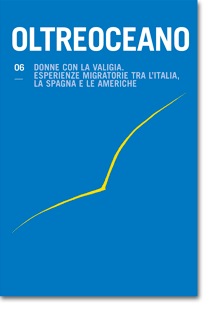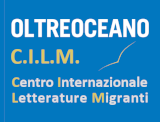Stories of Suitcases: Young Girls from Auschwitz to Canada
Parole chiave:
The Old Brown Suitcase, Warsaw and Hana’s Suitcase, racism, identity, diasporaAbstract
The Old Brown Suitcase by Lillian Boraks-Nemetz, who survived the Holocaust in Warsaw and Hana’s Suitcase by Karen Levine, have moved the world for the simplicity yet intensity with which they describe this devastating moment in the history of the Jews. These are books which can teach children about the horrific events but they can also offer alternative readings on issues of racism, identity and diaspora. By learning of the cultures, traditions and languages of others, children are encouraged to be observant, receptive and more open-minded, a first step in eradicating stereotypical prejudices and intolerance towards those considered ‘diverse’.
Storie di valigie: bambine da Auschwitz al Canada
The Old Brown Suitcase di Lillian Boraks-Nemetz, sopravvissuta all'Olocausto di Varsavia e Hana's Suitcase di Karen Levine, hanno commosso il mondo per la semplicità e l'intensità con cui descrivono questo momento devastante della storia degli ebrei. Questi sono libri che possono insegnare ai bambini gli eventi orribili, ma possono anche offrire letture alternative su questioni di razzismo, identità e diaspora. Imparando le culture, le tradizioni e le lingue degli altri, i bambini sono incoraggiati ad essere attenti, ricettivi e di mentalità più aperta; un primo passo per sradicare pregiudizi stereotipati e intolleranza verso coloro che sono considerati ‘diversi’.
Downloads
Riferimenti bibliografici
Adorno, T. (2005): Commitment. In Arato & E. Gebhardt (Ed.), The Essential Frankfurt Reader (pp. 300-318). A. New York: Continuum.
Atwood, M. (2004): In Search of Alias Grace. In M. Atwood, Moving Targets: Writing with Intent 1982-2004 (pp. 196-217). Toronto: Anansi.
Auschwitz case study. Retrieved from http://www.bbc.co.uk/worldservice/people/highlights/010821_hana.shtml.
Baer, E. R. (2000): A New Algorithm in Evil: Children’s Literature in a Post-Holcaust World. The Lion and the Unicorn, 24, 3, pp 378-401.
Boraks-Nemetz, L. (2008): The Old Brown Suitcase. Vancouver: Ronsdale Press.
Coats, C. (2002): Review of Hana’s Suitcase. Canadian Ethnic Studies, 34, 2, pp. 151-52.
Ellis, S. (1996): Review of The Old Brown Suitcase. The Horn Magazine, 71, 1, pp. 117.
Kokkola, L. (2009): Representing the Holocaust in Children’s Literature. London: Routledge.
Lambertson, R. (2005): Repression and Resistance: Canadian Human Rights Activists, 1930-1960. Toronto: University of Toronto Press.
Levine, K. (2002): Hana’s Suitcase. Toronto: Second Story Press.
Muller, A. (2010): Writing the Holocaust for Children: On the Representation of Unimaginable Atrocity. Jeunesse: Young People, Texts, Cultures, 2, 2, pp. 147-164.
Naves, E. K. (1993.09.18): Holocaust children’s tales are heartbreaking. Review of Hidden Children: Forgotten Survivors of the Holocaust. The Gazette, p. 1 J.
Pihlainen, K. (2008): History in the World: Hayden White and the Consumer of History. Rethinking History, 12, 7, pp. 23-39.
Pennell, V. (2003), Exploring our Heritage: An Overview of Recent Canadian Historical Fictionfor Children and Young Adults”. Canadian History: School Libraries in Canada, 22, 3, pp. 5-11.
Stone, J. (2009.11.13): Review of Old Brown Suitcase. The Vancouver Sun, p. 12.
White, H. (2006): Historical Discourse and Literary Writing. In K. Korhonen (Ed.), Tropes for the Past: Hayden White and the History/Literature Debate (pp. 25-33). Amsterdam and New York: Rodopi.
White, L. (2003.06.15-18); Interview with Karen Levine. Proceedings of the 38th Annual Convention of the Association of Jewish Libraries in Toronto, Ontario. Retrieved from http://en. wikipedia.org/wiki/Hana_Brady
Downloads
Pubblicato
Come citare
Fascicolo
Sezione
Licenza

Questo lavoro è fornito con la licenza Creative Commons Attribuzione - Non commerciale - Condividi allo stesso modo 4.0 Internazionale.
Gli autori si impegnano a rispettare le seguenti condizioni, che s’intendono accettate al momento della sottomissione per la stampa dei propri contributi.
L’invio di un testo implica che esso sia inedito e non in attesa di essere pubblicato altrove.Gli autori si impegnano a rispettare le seguenti condizioni, che s’intendono accettate al momento della sottomissione per la stampa dei propri contributi.
- Qualora venga accettato, l’autore conferisce all’editore il diritto di pubblicarlo e distribuirlo sia in forma cartacea che nell’edizione elettronica in rete. Gli articoli pubblicati saranno scaricabili e resi disponibili in open access.
- Purché segnali correttamente che la prima pubblicazione è avvenuta sulla rivista «Oltreoceano. Rivista sulle migrazioni», l’autore ha facoltà di: a) riprodurre l’articolo in estratti separati o raccolti in volume; b) pubblicare l’articolo nel proprio sito personale o in quello di corsi di insegnamento purché si tratti di siti di natura non commerciale; c) depositare l’articolo in archivi online di carattere non commerciale, legati all’istituzione di appartenenza o come parte di progetti di diffusione non commerciale e open access dei lavori scientifici.
Non è consentita l’utilizzazione dei contributi da parte di terzi, per fini commerciali o comunque non autorizzati. L’editore declina ogni responsabilità sull’uso non autorizzato del materiale pubblicato sulla rivista.













